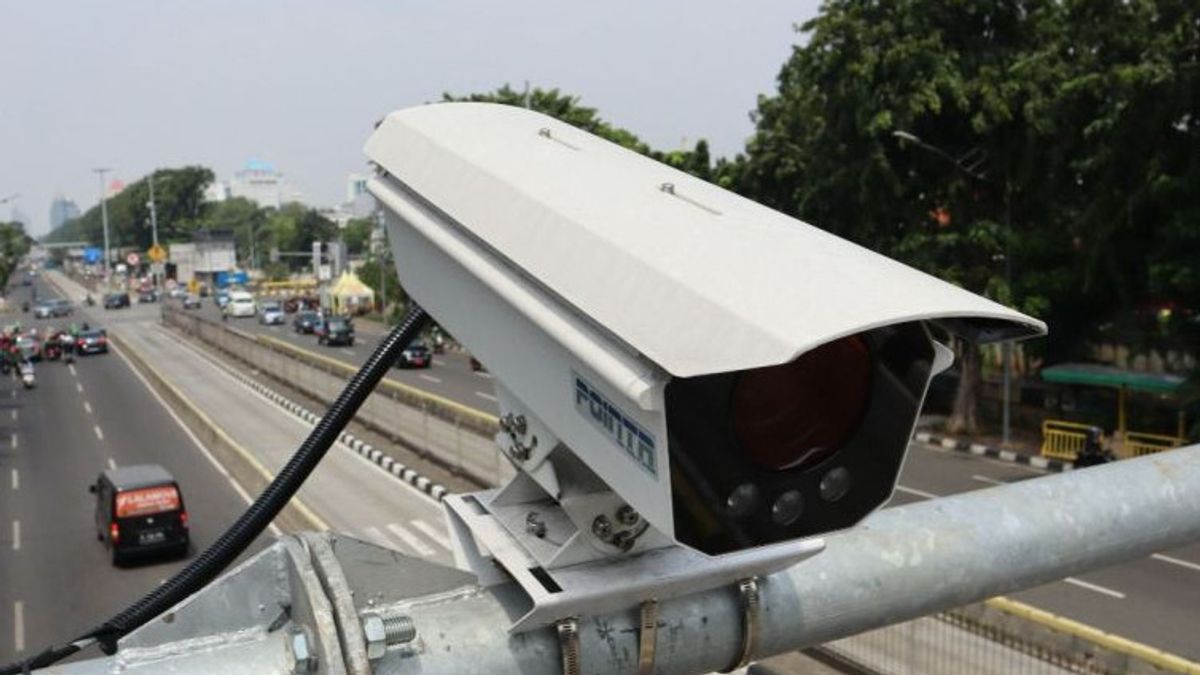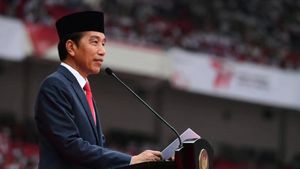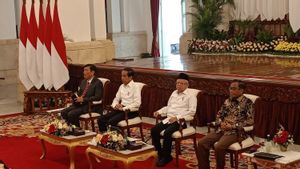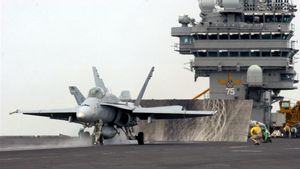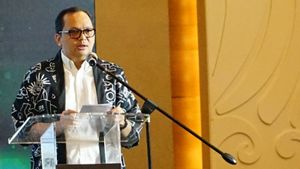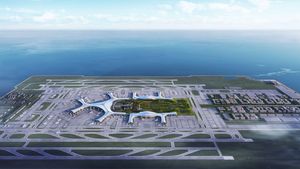JAKARTA - Head of the DKI Jakarta Transportation Agency, Syafrin Liputo, said that artificial intelligence (AI) installed technology at 20 intersections effectively reduces congestion at road intersections.
"The system continues to learn from April. According to our observations, this has had a positive effect on 20 regulated intersections," said Syafrin, quoted by ANTARA, Monday, July 3.
Syafrin gave an example of the benefits of AI on Jalan Gunung Sahari-Jalan Dokter Sutomo (MBAL) which in the afternoon from the south side can flow more smoothly to the north.
In shape, said Syafrin, this AI camera is in the form of an ANPR camera that looks similar to the ETLE camera from the police. However, this camera is located at 100 meters before the crossroads.
"So at 20 intersections, there are five intersections, some are intersections, three intersections. So at the feet of the intersection it is about 100 meters away, we install ANPR cameras. That is to monitor how many trafficvolume enter the legs of the intersection," said Syafrin.
Syafrin explained that the application of AI is different from Google Indonesia's cooperation. Now, the implementation of AI itself by the Transportation Agency with a budget of IDR 78 billion for 20 intersection points and control rooms on the 16th floor of the Transportation Service Building, Gambir, Central Jakarta.
The collaboration with Google, said Syafrin, is that Google calculates the traffic volume density, then the data is given to the DKI Transportation Agency and traffic light settings are carried out according to Google's input manually.
Meanwhile, how an AI device in the form of an ANPR camera works is a system that calculates the volume of traffic that enters each leg of the intersection, then the system will calculate the time cycle.
"Then a green time (longer green light time) was given to one of the most crowded intersections. That was immediately given priority time to pass," said Syafrin.
It is known, the DKI Jakarta Transportation Agency (Dishub) said that as many as 20 intersections have used artificial intelligence (AI) technology to help reduce congestion.
另请阅读:
The 20 locations that already use artificial intelligence (AI) technology include Jalan Jembatan 2 Raya-Jalan Tubagus Angke, Jalan Kyai Tapa-Jalan Daan Mogot (Grogol), Jalan S Parman-Jalan Tomang Raya, Jalan S. Parman-Jalan KS. Tubun-Jalan Gatot Subroto (Slipi), and Jalan Gatot Subroto-Jalan Rasuna Said (Kuningan).
Then Jalan Gatot Subroto-Jalan Supomo (Pancoran), Jalan MT Haryono-Jalan Sutoyo (Cawang Uki), Jalan DI Panjaitan-Jalan Kalimalang, Jalan Ahmad Yani-Jalan Utan Kayu (Rawamangun), Jalan Ahmad Yani-Jalan Pemuda-Jalan Pramuka, Jalan Ahmad Yani-Jalan H. Ten, and Jalan Perintis Kemerdekaan-Jalan Letjen Suprapto.
Then Jalan Senen Raya-Jalan Kwitang (Senen), Jalan Gunung Sahari-Jalan Wahidin, Jalan Gunung Sahari-Jalan Dokter Sutomo (MBAL), Jalan Gunung Sahari-Jalan Angkasa-Jalan Samanhudi, Jalan Gunung Sahari-Jalan Mangga Besar (Kartini), Jalan Gunung Sahari-Jalan Pangeran Jayakarta, Jalan Gunung Sahari-Jalan Mangga Dua, and Jalan Perniaga Raya-Jalan Pasar Pagi Flyover (Jembatan Lima).
The English, Chinese, Japanese, Arabic, and French versions are automatically generated by the AI. So there may still be inaccuracies in translating, please always see Indonesian as our main language. (system supported by DigitalSiber.id)
